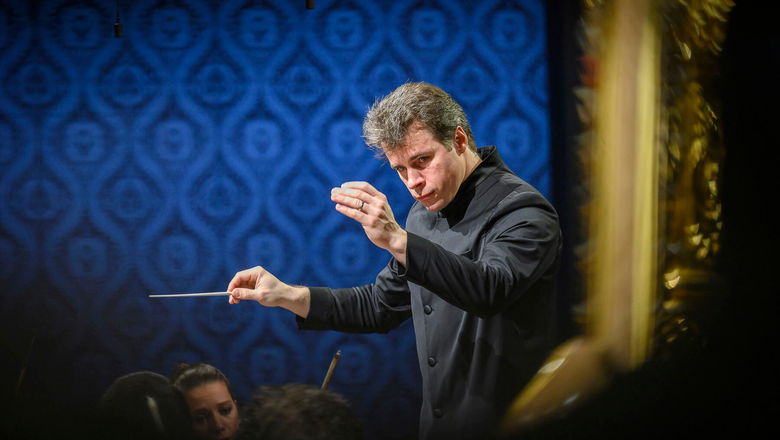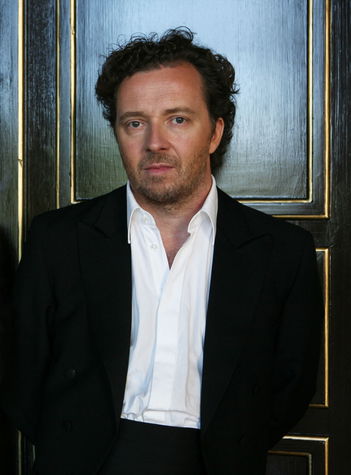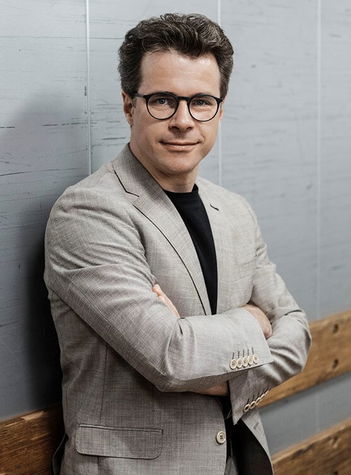Born in the Czech Republic, Jakub Hrůša is Chief Conductor of the Bamberg Symphony, Music Director Designate of the Royal Opera, Covent Garden (Music Director from 2025), and Principal Guest Conductor of the Czech Philharmonic. He was also formerly Principal Guest Conductor of the Orchestra dell’Accademia Nazionale di Santa Cecilia, the Philharmonia Orchestra, and Tokyo Metropolitan Symphony Orchestra.
He is a frequent guest with the world’s greatest orchestras, including the Vienna, Berlin, Munich and New York Philharmonics; Bavarian Radio, NHK, Chicago and Boston Symphonies; Leipzig Gewandhaus, Lucerne Festival, Royal Concertgebouw, Mahler Chamber and The Cleveland Orchestras; Orchestre Philharmonique de Radio France, and Tonhalle Orchester Zürich. He has led opera productions for the Salzburg Festival (Káťa Kabanová with the Vienna Philharmonic in 2022), Vienna State Opera, Royal Opera House, and Opéra National de Paris. He has also been a regular guest with Glyndebourne Festival and served as Music Director of Glyndebourne On Tour for three years.
His relationships with leading vocal and instrumental soloists have included collaborations in recent seasons with Daniil Trifonov, Mitsuko Uchida, Hélène Grimaud, Behzod Abduraimov, Anne Sofie Mutter, Lisa Batiashvili, Joshua Bell, Yefim Bronfman, Rudolf Buchbinder, Gautier Capuçon, Julia Fischer, Sol Gabetta, Hilary Hahn, Janine Jansen, Karita Mattila, Leonidas Kavakos, Lang Lang, Josef Špaček, Jean-Yves Thibaudet, Yuja Wang, Frank Peter Zimmermann, Alisa Weilerstein and others.
As a recording artist, Jakub Hrůša has received numerous awards and nominations for his discography. Most recently, he received the Opus Klassik Conductor of the Year 2023 prize and the ICMA prize for Symphonic Music for his recording of Bruckner’s Symphony No. 4, and the Preis der Deutschen Schallplattenkritik for his recording of Mahler’s Symphony No. 4, both with Bamberg Symphony. In 2021, his disc of Martinů and Bartók violin concertos with Bamberg Symphony and Frank Peter Zimmermann was nominated for BBC Music Magazine and Gramophone awards, and his recording of the Dvořák Violin Concerto with the Bavarian Radio Symphony and Augustin Hadelich was nominated for a Grammy Award.
Jakub Hrůša studied at the Academy of Performing Arts in Prague, where his teachers included Jiří Bělohlávek. He is President of the International Martinů Circle and The Dvořák Society. He was the inaugural recipient of the Sir Charles Mackerras Prize, and in 2020 was awarded both the Antonín Dvořák Prize by the Czech Republic’s Academy of Classical Music, and – together with Bamberg Symphony – the Bavarian State Prize for Music.




